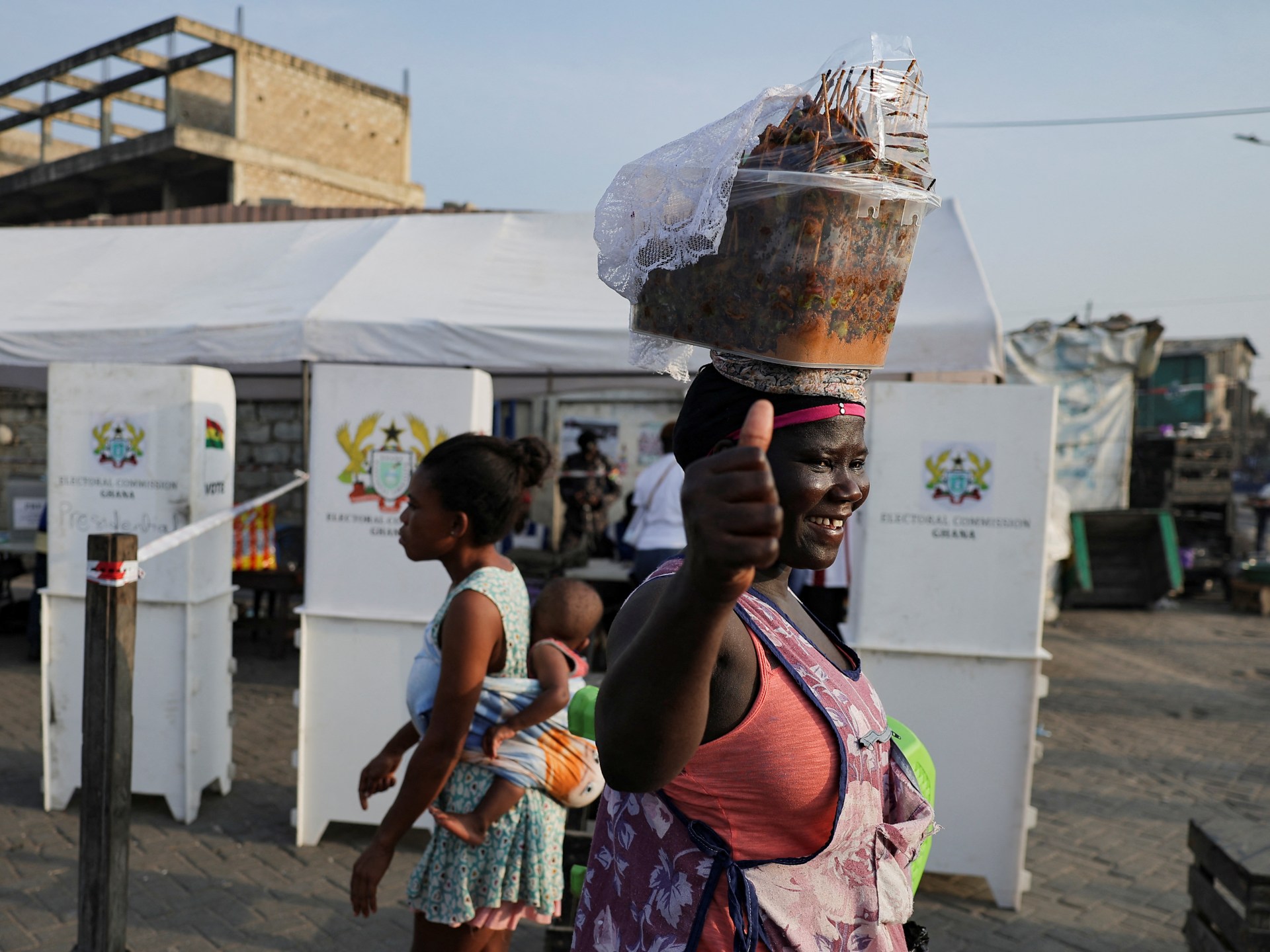The West African country considered a beacon of democratic stability is holding presidential and legislative elections amid an economic crisis.
Polls have opened in Ghana for a general election poised to test the country’s democratic stability in a region shaken by political violence and coups.
Voting opened at 7am [07:00 GMT] and will close at 5pm [17:00 GMT] on Saturday, with early results expected on Sunday and full results for the presidential election likely by Tuesday.
Vice president and former central banker Mahamudu Bawumia and opposition ex-president John Mahama are leading a closely fought race dominated by a worsening economic crisis. Both Bawumia and Mahama are from the historically disadvantaged northern part of the country, which is now likely to determine the outcome of the election. This is a departure from previous elections in which voters from the south of the country have played a more influential role.
President Nana Akufo-Addo will step down after his legally allowed two terms. Voters will also elect the country’s new parliament in these elections, with some 18.8 million people registered to vote in a nation of 34 million. Previous turnout in elections has been about 70 percent.
Ghana’s government temporarily closed all land borders from Friday night to Sunday to “ensure the integrity” of the vote, an interior ministry statement said.
With a history of political stability, Ghana’s two main parties, the governing New Patriotic Party (NPP) and main opposition National Democratic Congress (NDC), have alternated in power almost equally since 1992. Neither party, however, has ever managed to “break the eight” or win three consecutive presidential terms.
NPP hopes their candidate, Bawumia, can lead them to an unprecedented third term in office. But the party has struggled to shake off criticism of Akufo-Addo’s economic record.
Ghana’s struggling economy emerged as the dominant electoral issue after the West Africa gold and cacao producer went through a debt default, high inflation and negotiations for a $3bn IMF bailout.
Bawumia, a United Kingdom-educated economist, has pledged to continue the government’s plans for digitalisation to ease business as well as free education and health programmes.
“I know what I want to do from day one in the presidency. Give me the chance to transform this nation,” he told thousands of supporters at a closing rally in Accra.
Opposition candidate Mahama was president from 2012 to 2017 and has since failed twice in presidential bids.
He said he will “reset” Ghana and introduce a “24-hour economy”, extending industrial hours to create jobs and increase production, and renegotiate parts of the country’s lending programme with the International Monetary Fund (IMF).
The spread of illegal gold mining has also become an election issue. Akufo-Addo promised to stop illegal mining, but it has expanded, poisoning rivers and impacting cacao farmlands, a major source of export income.
Ghana also faces an increasing risk of a spillover in its northern regions from conflicts in Niger and Burkina Faso, where military governments rule after coups.
Ghana is often considered a model of political stability in a region shaken by coups and insecurity, but its parliament has shown recent signs of unrest.
In 2021 during the inauguration of parliament, soldiers intervened to restore order after an outright brawl between members of the governing NPP and the opposition NDC.
